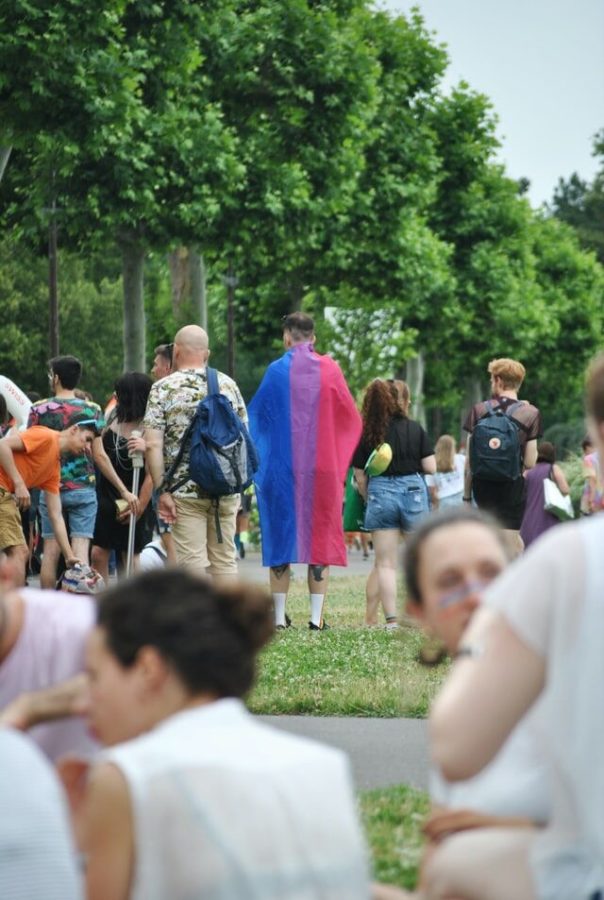Iowa State students explain the importance of celebrating bisexual visibility
Bisexual Visibility Week is celebrated in order to combat bi-erasure inside and outside of the LGBTQIA+ community.
September 27, 2020
Bisexuality Visibility Day and Bisexual Visibility Week were created to not only celebrate the sexuality but to also start a conversation around the stigma of bi-erasure and biphobia within the community and outside of it.
Bisexual Visibility Day falls on Sept. 23, which also marks the beginning of Bisexual Awareness Week, continuing until Sept. 30. Bisexual Visibility Day was first observed at the International Lesbian and Gay Association conference in Johannesburg, South Africa.
According to research by the Williams Institute and the HRC Foundation, studies suggest that about 50 percent of people who identify as either gay, lesbian or bisexual identify themselves as bisexual, making the bisexual population the single largest group within the LGBTQIA+ community.
Even though they compose the majority of the LGBTQIA+ community, bisexual individuals still experience biphobia, sometimes even from their own community. A 2017 study done by American University found that stressors had more of an impact because bisexual people face what researchers described as “double discrimination” from both the queer and non-queer community, according to PinkNews.
This is because bisexual people are often excluded in LGBTQIA+ conversations or are assumed to be gay or straight based on the gender of the person they are currently dating. This is called bi-erasure.
“Sometimes, people don’t believe it’s possible to be bi,” said Esperanza, who chose to not reveal her last name. “For example, I always hear, ‘You just haven’t found the right man yet,’ and even ‘You just need to stop dating men and find the right girl.’ It can be very frustrating because I don’t want to be confined to only liking one type of person.”
Bisexual erasure can happen explicitly or implicitly in day-to-day dialogue and is a manifestation of biphobia. This is when a person experiences discrimination based on their bisexual identity.
“I sadly have experienced biphobia by a close family member,” said Skylar Wolsch-Gallia, president of the Omicron chapter of Gamma Rho Lambda, a sorority for the LGBTQIA+ and ally community of Iowa State. “They were asking me if I was sure about being bisexual as well as what makes me think that I am bisexual.”
Iowa State has six official LGBTQIA+ organizations located on campus that students can join. The list of student organizations is located on the Center for LGBTQIA+ Student Success’ webpage. The website also has multiple student interest groups listed as well and the ability for students to start their own new group.
“It’s important to have LGBTQIA+ organizations on campus because it is showing that there is support on campus as well as representation for the community,” Wolsch-Gallia said. “It also lets people know where they can find support if they need it.”
Wolsch-Gallia and Esperanza explained that there are many things that can help raise bisexual awareness, such as calling out biphobia. Calling out biphobia can help raise awareness, whether it be in calling out direct hateful comments or passing comments and jokes. Joining LGBTQIA+ organizations, looking through hashtags such as the Bisexuality Visibility Day and Bisexual Visibility Week hashtags on social media and educating friends and loved ones are also great places to start.
Wolsch-Gallia and Esperanza said seeing and hearing personal stories shared by others who have come out or who are being supportive allies can help others understand bi-erasure and can help encourage empathy.
“Don’t be afraid to keep educating yourself about the topic,” Esperanza said. “There’s so many people out there that have gone through, are currently going through and will go through what you have experienced. Find comfort in that thought.”

















